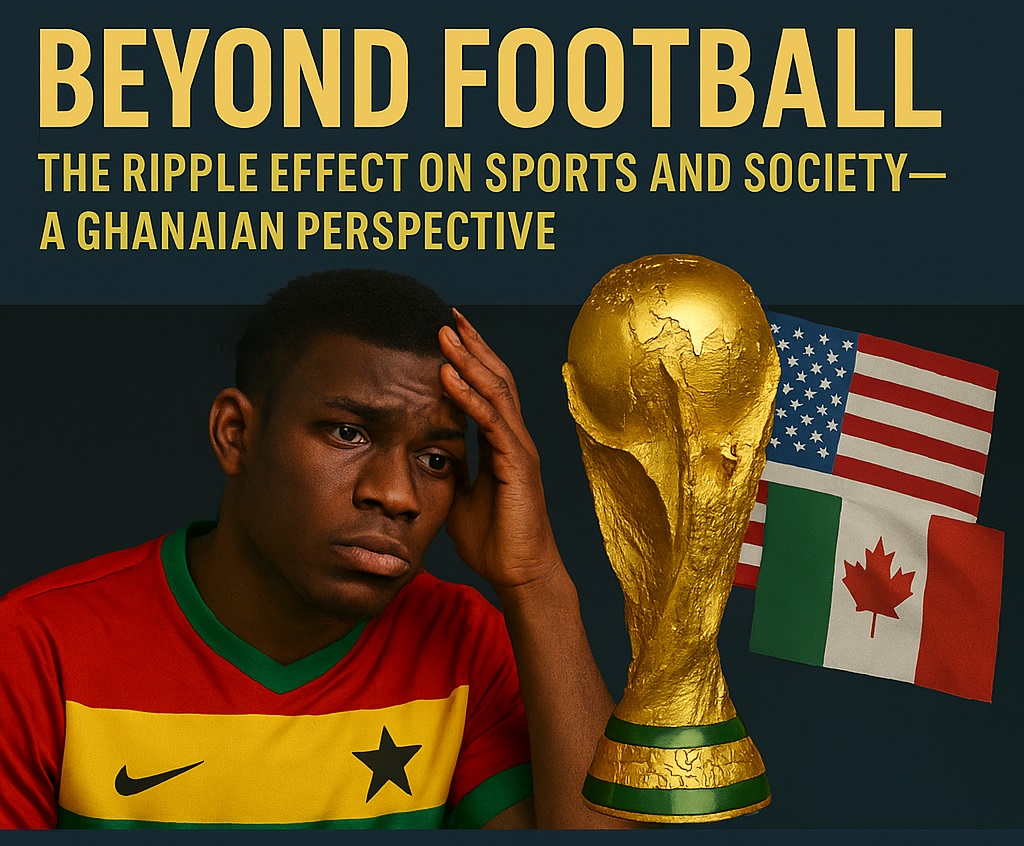Beyond Football: The Ripple Effect on Sports and Society Amid Trump’s Travel Ban

Sports have always been more than just a game; they are a way of life. Whether it's the electrifying atmosphere of a Kotoko vs. Hearts showdown or the global spectacle of the FIFA World Cup, sports unite communities and drive economies. However, recent developments—including President Donald Trump’s latest travel ban—are shaking up the sporting world, affecting football and extending far beyond the pitch.
Sports have long transcended mere competition; they serve as cultural and economic drivers, uniting not just communities but nations. However, President Donald Trump’s latest travel ban, set to take effect on June 9, 2025, is threatening this harmony, impacting the sporting ecosystem in affected nations far beyond football.
With 12 countries facing full restrictions and several others under partial bans, the global sports landscape—including the FIFA World Cup 2026, which will be jointly hosted by the USA, Canada, and Mexico—is set to feel the effects.
Impact on the FIFA World Cup
The World Cup is football’s biggest spectacle, bringing nations together on a shared stage of competition and camaraderie. However, the ban introduces serious challenges for teams, players, and fans from restricted countries:
-
Travel Challenges: With tightened restrictions, football fans from Iran, Haiti, Sudan, and other banned countries may struggle to attend matches in host nations, dampening tournament spirit.
-
Team Participation & Preparations: While athletes from the affected nations competing in the 2026 FIFA World Cup may receive exemptions, there is uncertainty regarding visa approvals, training camps, and sponsorship deals for these teams.
-
Financial Fallout: The host nation’s economy thrives on tourism, hospitality, and sponsorships—a drop in attendance from banned nations could lead to millions in losses for businesses.
-
Fan Engagement Decline: Even if players can participate, thousands of supporters may be barred from traveling, impacting attendance and reducing the enthusiasm surrounding global tournaments.
Effects on Other Sports
While football dominates global sports, other disciplines—including boxing, athletics, and basketball—face similar disruptions:
-
Sponsorship & Funding: Investors often target high-profile international sporting events, but political instability could lead to sponsor withdrawals, affecting both football and lesser-funded sports.
-
Athlete Development: Exposure to international leagues and tournaments is vital for athletes from restricted nations, but uncertainty over visa approvals could limit opportunities and slow their professional growth.
-
Media & Broadcasting Concerns: Major sports networks rely on diverse global coverage—if access is restricted, viewers from banned nations may struggle to follow international competitions, impacting overall engagement.
Trump’s Travel Ban: A Global Disruption
Trump’s new travel ban prevents entry from 12 countries, including Afghanistan, Myanmar, Chad, Republic of the Congo, Equatorial Guinea, Eritrea, Haiti, Iran, Libya, Somalia, Sudan, and Yemen. Additionally, Burundi, Cuba, Laos, Sierra Leone, Togo, Turkmenistan, and Venezuela face partial restrictions, limiting their citizens’ access to visas for work, study, and travel.
Reactions & Consequences
The ban has sparked international backlash and raised concerns over human rights violations and economic implications:
-
Reciprocal Measures: Some affected nations, including Chad, are considering retaliatory visa restrictions on U.S. citizens, potentially impacting sports diplomacy and cultural exchanges.
-
Legal Challenges Expected: Advocacy groups and political figures—including Rep. Ilhan Omar—have condemned the ban, calling it "discriminatory and damaging."
-
Economic & Social Fallout: The restrictions affect students, workers, and families, leading to widespread disruptions in academic and professional careers, beyond just sports.
Economic & Social Consequences in Affected Nations
Beyond the stadiums, sports play a critical role in driving economies and influencing culture in banned countries:
-
Tourism & Local Businesses: Nations heavily reliant on sports tourism may suffer. Major events like the African Cup of Nations (AFCON) and regional tournaments in Iran, Sudan, and Haiti could see declining attendance, impacting local businesses.
-
Youth & Grassroots Development: Many aspiring athletes from restricted nations dream of securing professional contracts abroad. If access to international football leagues weakens, talent development in affected regions could stagnate.
-
Media & Broadcasting Challenges: Sports journalism thrives on global coverage, but a drop in international tournaments featuring players from banned countries could change media priorities and affect engagement levels.
The Road Ahead
Despite these challenges, sports remain resilient, capable of overcoming political barriers through international cooperation and innovative solutions. Affected nations must push for diplomatic resolutions to ensure athletes and fans can participate freely in global competitions.



0 Comments
No comments yet, be the first to comment